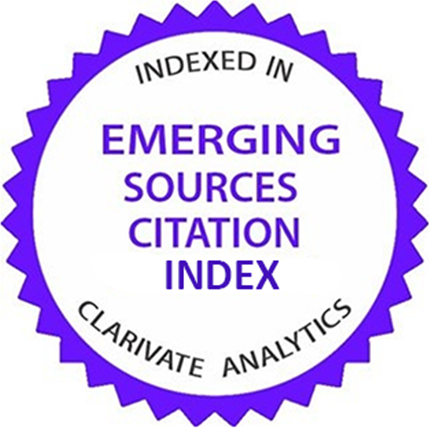Psychological problems and associated factors during COVID-19 pandemic in Ethiopia
Abstract
Objective: Psychological problems like depression, anxiety, and stress are common in the general population and they have a negative impact on the well-being of the community as well as the country. Pandemic diseases like COVID-19 increase the prevalence of psychological problems in the community. Studying psychological problems and associated factors in the community is very crucial for community mental health management. However, evidence is scarce in Ethiopia. Therefore, this study aimed to assess the prevalence of psychological problems and factors in the community during the COVID-19 pandemic in Shashemene Town, Oromia, Ethiopia. Methods: A community-based cross-sectional study was conducted from February 01,2012 to February 28, 2021. A structured, pretested, and interviewer-administered questionnaire was used to collect data from 889 study participants selected through a simple random sampling technique. The data was collected using the depression, anxiety, and stress scale (DASS-21) questionnaire and analyzed using SPSS version 25.0. Bivariable and multivariable logistic regression was done to determine factors associated with DAS. Adjusted odds ratio with their 95% confidence intervals were calculated to identify the presence and strength of an association, while statistical significance was reported at P<0.05. Results: The prevalence of psychological problems was 96.6% [95% Cl: 95.9,98.1]. The overall prevalence of depression and anxiety were 30% and 43.5% respectively. Having COVID-19 symptoms in the past two weeks before the survey (AOR=0.34; 95% Cl: 0.15,0.77) and having known medical problems (AOR=0.28; 95% Cl: 0.13,0.59) were factors significantly associated with a psychological problem in response to COVID-19 pandemic. Conclusion: The prevalence of psychological problems in response to the COVID-19 pandemic infection was very high in the study area. It needs immediate action to alleviate this psychological problem crisis in the community.
de Souza WM, Buss LF, Candido DDS, et al. Epidemiological and clinical characteristics of the COVID-19 epidemic in Brazil. Nat Hum Behav. 2020;4(8):856-65.
Srivastava N, Baxi P, Ratho RK, Saxena SK. Global trends in epidemiology of Coronavirus disease 2019 (COVID-19). 2020:9-21
WHO. Information about Coronavirus disease (COVID-19) pandemic;2021.
WHO. Mental health and psychosocial considerations during the COVID-19 outbreak; 2020.
WHO. Vulnerable populations during COVID-19 response. Factsheet;2020.
WHO. COVID-19 disrupting mental health services in most countries, WHO survey, 2020.
Serafini G, Parmigiani B, Amerio A, Aguglia A, Sher L, Amore M. The psychological impact of COVID-19 on the mental health in the general population in New York. An International Journal of Medicine. 2020:113(80).
Akalu YT, Gelaye KA, Bishaw MA, et.al. Depression, anxiety, and stress symptoms and its associated factors among residents of Gondar town during the early stage of COVID-19 pandemic. Risk Management and Healthcare Policy. 2021;14:1073-83.
Parekh R. What is mental illness? American psychiatric association, Physician Review. 2018.
Mekonen EG, Workneh BS, Ali MS, et.al. The psychological impact of COVID-19 pandemic on graduating class students at the University of Gondar, Northwest Ethiopia. Dove Press;2021;14:109-22.
Jiang L, Yan Y, Jin Z-S, et.al. The depression anxiety stress scale-21 in Chinese hospital workers: reliability, latent structure, and measurement invariance across genders. Front Psychol. 2020;11:741.
Kassaw C. The magnitude of psychological problem and associated factor in response to COVID-19 pandemic among communities living in Addis Ababa, Ethiopia, March 2020: a cross-sectional study design. Psychol Res Behav Manag. 2020;13:631-40.
Chekole YA, Minaye SY, Abate SM, and Mekuriaw B. Perceived stress and its associated factors during COVID-19 among healthcare providers in Ethiopia: a cross-sectional study. Hindawi: Advances in Public Health. 2020;2020.
Shashemene Town Health Office, 2021.
Austrian K, Pinchoff J, Tidwell JB, et al. COVID-19 related knowledge, attitudes, practices and needs of households in informal settlements in Nairobi, Kenya. Bull World Health Organ. 2020.
Kassaw C, Pandey D. The current mental health risis of COVID-19 pandemic among communities living in Gedeo Zone Dilla, SNNP, Ethiopia, April 2020. J Psychosoc Rehabil Ment Health. 2021;8(1):5-9.
| Files | ||
| Issue | Vol 7 No 4 (2023): Autumn (October) | |
| Section | Original article | |
| DOI | 10.18502/fem.v7i4.14473 | |
| Keywords | ||
| COVID-19 Pandemic Psychological Problems Shashemene Town | ||
| Rights and permissions | |

|
This work is licensed under a Creative Commons Attribution-NonCommercial 4.0 International License. |










